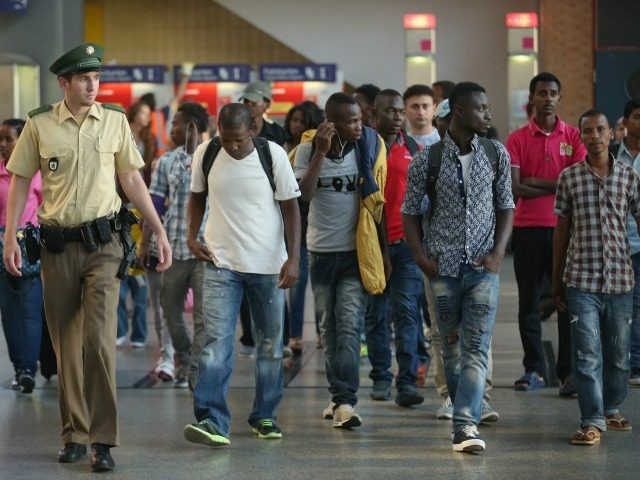After Sunday night’s ISIS-related suicide bombing in Ansbach, Germany, a number of politicians are insisting that the deportation of rejected asylum-seekers must be expedited to ensure that potentially dangerous individuals leave the country as soon as possible.
The bomber who detonated an explosive-packed rucksack outside a wine bar in the Bavarian city of Ansbach was a 27-year-old Syrian migrant named Mohammad Daleel who had been refused permission to stay in Germany and was due to be deported. Investigators found that Daleel, who injured 15 people in the blast, had pledged allegiance to the Islamic State.
Bavarian Prime Minister Horst Seehofer declared that Germany needs a better system of verification of the status of migrants who are seeking asylum or who have been denied permission to stay. “We need to know who is in the country,” he said.
Armin Schuster, homeland security expert in the Bundestag and a member of the Christian Democrat party (CDU), warned that the country must carry out swifter deportations of rejected asylum-seekers. We need a “farewell culture,” Schuster said, referring to German Chancellor Angela Merkel’s announcement last year that Germany would foster a “welcoming culture” for migrants.
A domestic policy spokesman for the Social Democrats (SPD), Burkhard Lischka, also criticized the present state of law enforcement, urging that “asylum seekers or refugees who are rejected have to leave Germany.”
On Tuesday, Schuster told the Stuttgarter Zeitung newspaper that Germany had failed to enforce the deportation of rejected asylum seekers. Schuster complained that deportations were often mandated but not carried out and noted that some 200,000 failed asylum seekers due for deportation were still in the country.
Failure to uphold immigration laws ends up giving migrants the impression that “they can get away with anything,” Schuster said.
Sunday’s suicide bombing was the latest in a spate of recent terror attacks taking place across Germany, including assaults in Würzburg, Munich and Reutlingen. The four attacks in just a week included three by Muslim asylum-seekers and two claimed by the Islamic State group
According to investigators, the perpetrator of Sunday’s attack, Mohammad Daleel, had vowed to take “revenge against Germans for obstructing Islam.”
Bavarian authorities said that Daleel had received his expulsion orders nearly two weeks before his attack and deportation was expected to have taken place within 30 days. Though the man was denied asylum in 2015, he stayed on in Germany under a special category called “Duldung,” meaning that his presence would be tolerated.
Part of the problem, Schuster said, stems from the fact that the Federal Office for Migration and Refugees is overwhelmed with work, resulting in the inability to confirm the accuracy of refugees’ countries of origin. Misidentified migrants may often stay in the country even after they have been slated for deportation, he said.
In 2015, Germany received more than 2 million migrants, an increase of 700,000 over the previous year, according to official data. Registered asylum seekers were estimated to exceed 1 million.
Follow Thomas D. Williams on Twitter Follow @tdwilliamsrome

COMMENTS
Please let us know if you're having issues with commenting.